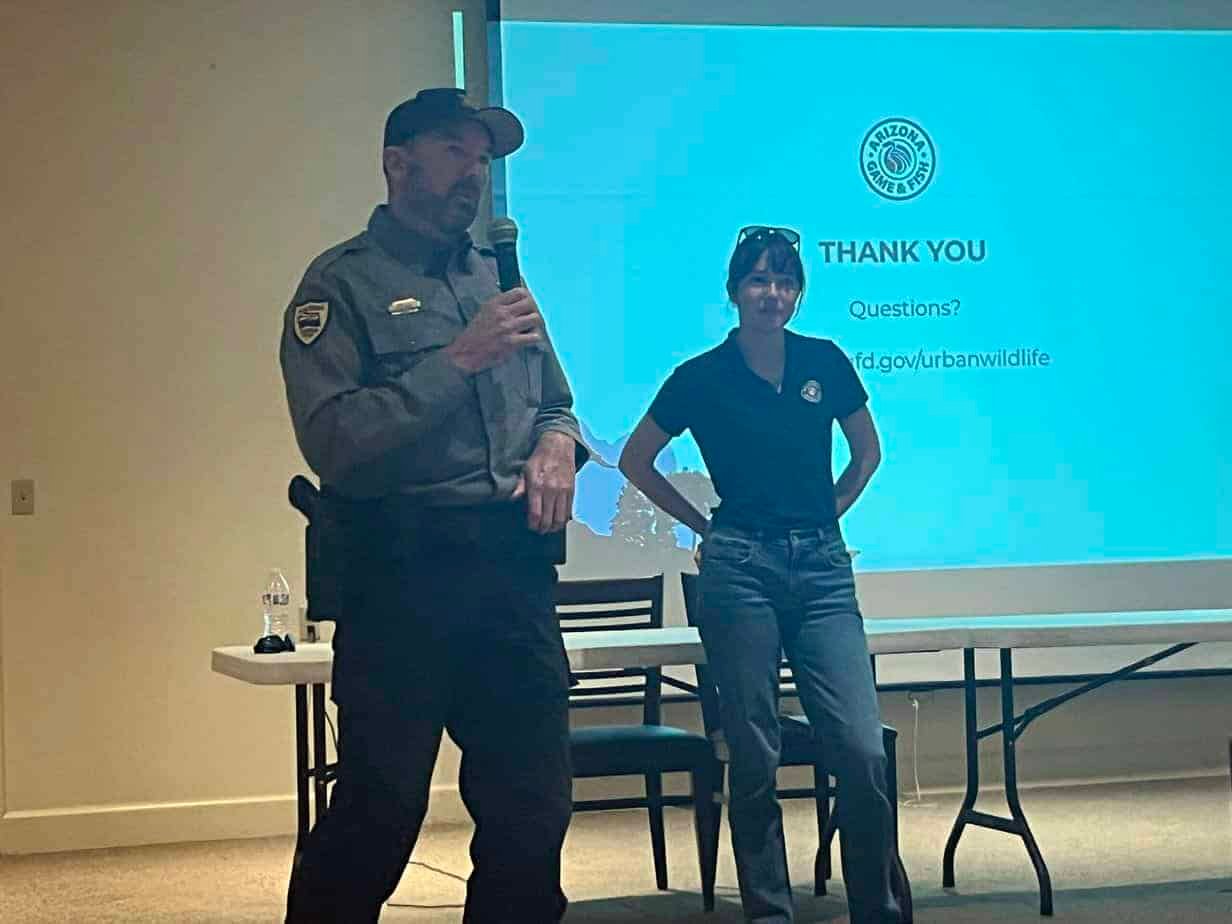arizona game and fish
No Evidence to Support VOC Coyote Poisoning Claims

The Arizona Game and Fish Department recently addressed concerns about nuisance wildlife in the Village of Oakcreek. Supervisor Tim Holt and Public Affairs Community Liaison Stevie Kelso presented findings regarding local coyote interactions to the Village Association on July 11, following early June reports of coyote sightings.
Holt categorized wildlife behaviors, noting, “A category 1 animal is one that’s already bitten or hurt someone.” He elaborated on the classifications from category 2, indicating potential threats, to category 4, which involves mere sightings. “Once we showed up, we figured they were probably category 3,” he stated, confirming there were no reported injuries to humans.
During the meeting, rumors arose online regarding potential coyote poisoning in the area. Holt acknowledged the claims for the first time and pledged to investigate. Representatives from multiple agencies, including the Runnin’ W. Wildlife Center and local sheriff’s offices, confirmed no verified cases of poisoning have occurred in the Village of Oak Creek or its surroundings.
The rumors potentially originated from a social media post by the Runnin’ W. Wildlife Center on June 17. The post detailed the treatment of a young coyote initially presumed to be injured from a car collision. However, tests later showed it had ingested poison. This coyote was ultimately euthanized after going blind.
Billy Harvey, Director of Runnin’ W, clarified that while they have managed a few poisonings, these incidents were not linked to the Village of Oak Creek. He speculated the coyote’s poisoning was a “secondary kill,” likely resulting from consuming rodents affected by rodenticide applied nearby.
Though the timing of the Cottonwood poisoning coincided with the deaths of several Oakcreek coyotes, no physical evidence connected the two events. “I had a family of six coyotes running around at night, and all of a sudden I started losing them,” expressed local resident Thomas White, who has monitored the area’s coyotes for years.
Placed under scrutiny, the Game and Fish Department received 59,351 calls in 2023, with 7,518 related to wildlife interactions needing assistance. Under Arizona law, coyotes are classified as predators, permitting those with valid hunting licenses to kill them year-round by various methods, excluding falconry or slinging.
According to Arizona Revised Statute §13-2910(B), it is legal to use poison on property to protect oneself or livestock. The statute outlines necessary precautions, including proper labeling and warnings for poison exposure.


















